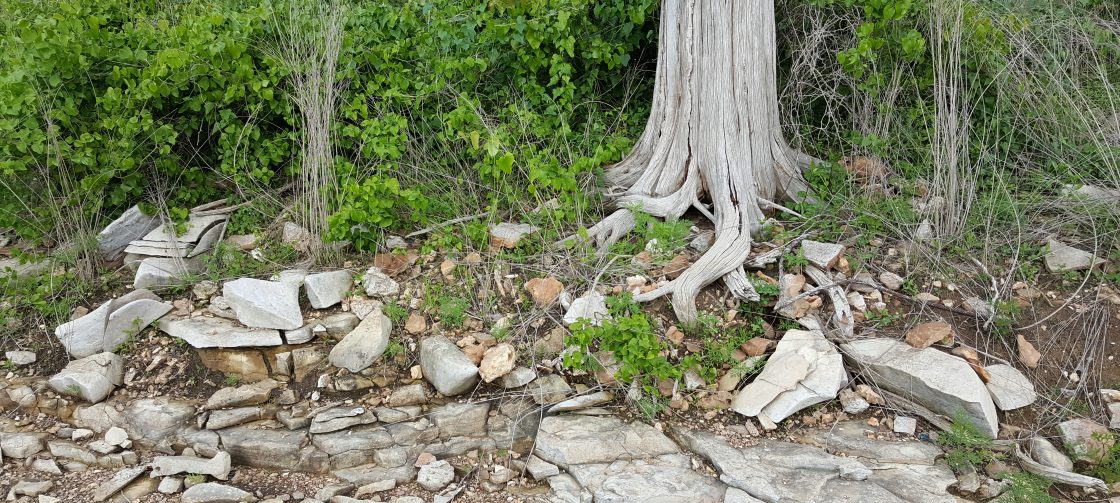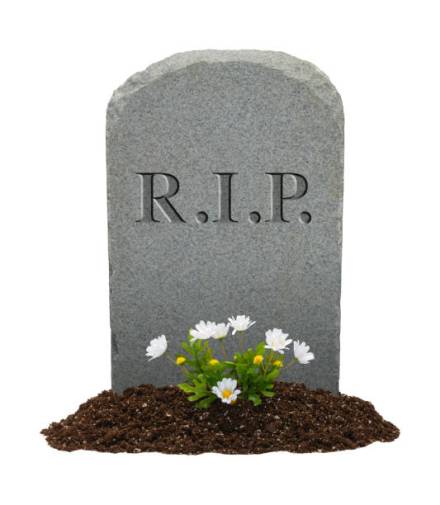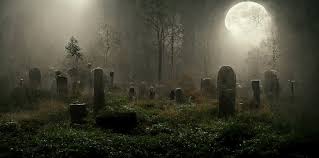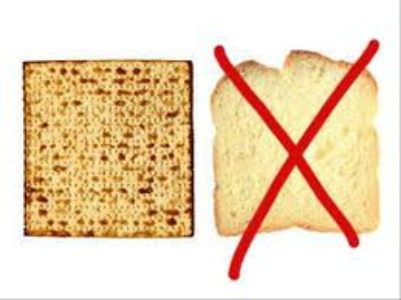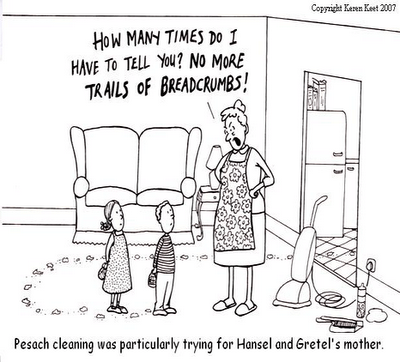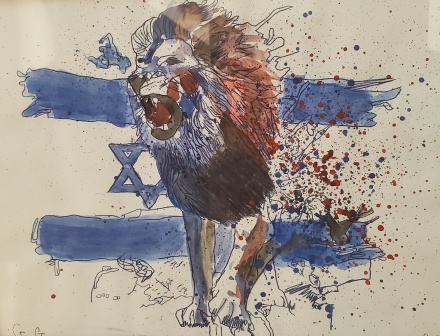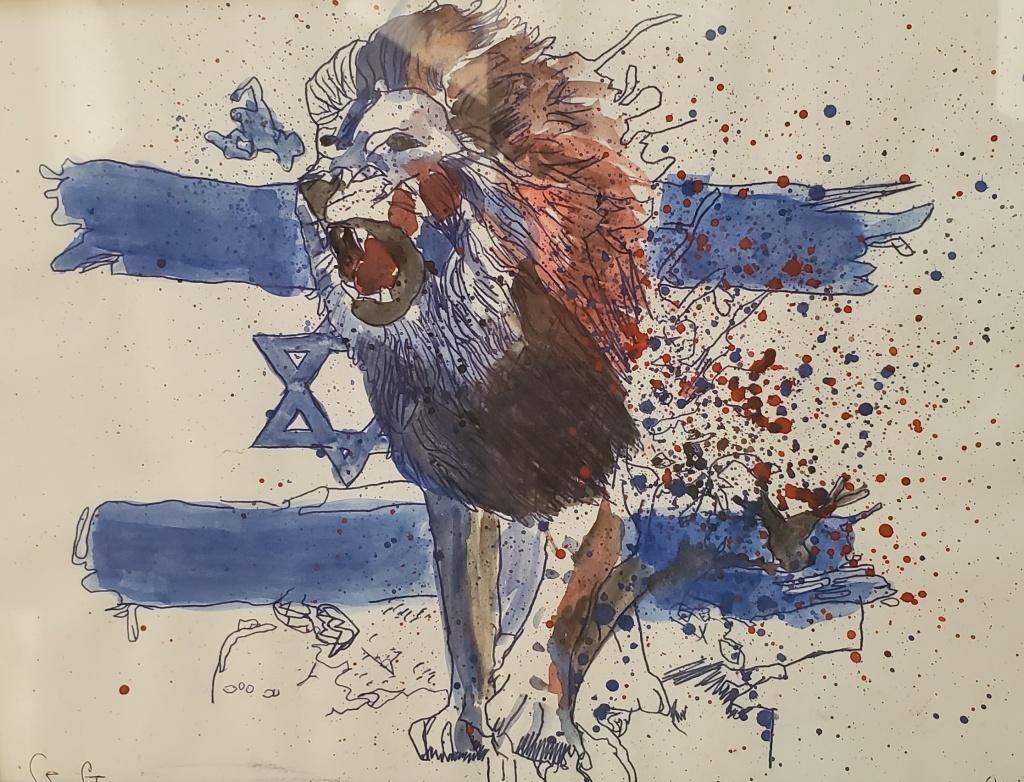By Hakham Meir Yosef Rekhavi
One should always bear in mind that history is written by the victors, and in this case, the victors were the Pharisees who collaborated with the Romans. Many people labour under the assumption that the Pharisees were the “Party of the People”, attracting the masses. This is simply not true. Such information as this is drawn from the Talmud and the works of Josephus, who himself was a Pharisee. However, if we comb through Josephus’ works we will notice that he has not been consistent in his white washing of the Pharisees. First, Josephus confesses as a Pharisee that the Pharisees added to the Tora laws that had not been handed down by YHWH to Moshe and the Children of Yisrael. What I would now explain is this, that the Pharisees have delivered to the people a great many observances by succession from their fathers, which are not written in the laws of Moses; and for that reason it is that the Sadducees reject them, and say that we are to esteem those observances to be obligatory which are in the written word, but are not to observe what are derived from the tradition of our forefathers. (Josephus Ant. 13 Ch. 10 Par. 6) The following passages taken from the works of Josephus clearly illustrate that the people did not adhere to the ways of the Pharisees but to those of the Sadducees. It will also become clear, against popular misconception, that it was the Pharisees who allied themselves and collaborated with the Roman Empire and not the Sadducees. “So she (Alexandra) made Hyrcanus high priest, because he was the elder, but much more because he cared not to meddle with politics, and permitted the Pharisees to do every thing; to whom also she ordered the multitude to be obedient. She also restored again those practices which the Pharisees had introduced, according to the traditions of their forefathers, and which her father-in-law, Hyrcanus, had abrogated. So she had indeed the name of the regent, but the Pharisees had the authority; for it was they who restored such as had been banished, and set such as were prisoners at liberty, and, to say all at once, they differed in nothing from lords.” (Josephus Ant. 13 Ch. 16 Par. 2) In the above passage, we notice several things; i) Queen Alexandra (76-67 b.c.e.), who succeeded her husband Alexander Yannai (103-76 b.c.e.) to the throne, was a sympathizer of the Pharisees. Alexander Yannai was a Sadducees. ii) We also notice that John Hyrkanos (134-104 b.c.e.) the second Hasmonean king and father of Alexander Yannai was also a Sadducee. iii) Queen Alexandra made the Pharisees her advisors and gave them a free hand in the affairs of State. iv) Queen Alexandra’s elder son Hyrkanos was weak and turned a blind eye to the Pharisaic coup d’etat. v) The people were ordered to follow the Pharisees, in other words a totalitarian dictatorial government of “do what we say or else” came about, the people therefore followed the Pharisees not because they loved the Pharisees nor because they agreed with them, but out of fear. vi) The Pharisaic way was installed by the power of the crown and not by the will of the people. vii) The Pharisees now had the power of government and not the Sadducees. Seventy two years later we notice that not much had changed; “HOW Sosius and Herod took Jerusalem by force; and besides that, how they took Antigonus captive, has been related by us in the foregoing book. We will now proceed in the narration. And since Herod had now the government of all Judea put into his hands, he promoted such of the private men in the city as had been of his party, but never left off avenging and punishing every day those that had chosen to be of the party of his enemies. But Pollio the Pharisee, and Sameas, a disciple of his, were honored by him above all the rest; for when Jerusalem was besieged, they advised the citizens to receive Herod, for which advice they were well requited.” (Josephus Ant. 15 Ch. 1 Par. 1) Herod was placed in power by Rome and therefore owed his allegiance to Rome. We notice in the above passage that the Pharisees supported Herod. Therefore, with Herod being a Roman proxy and the Pharisees being supporters of Herod, the Pharisees were also lackeys of the Roman Empire. During Herod’s rule the Kohen Haggadhol (High Priest) was appointed by Herod and seeing that the Pharisees were supporters of Herod it is only natural that he would appoint a Pharisee to the position of Kohen Haggadhol and not a Sadducee who would have been loyal to the Hasmonean dynasty. Therefore, during the Roman occupation the Kohen Haggadhol would have been a pro-Herodian Roman lackey, in other words a Pharisee, and not a pro-Hasmonean anti-Roman nationalist, i.e. a Sadducee. The victors, i.e. the Pharisees, after the Great Revolt and at the time of Emperor Hadrian rewrote history making themselves into anti-Roman nationalist and changing the Sadducees into collaborators when in truth, it was the other way around. Further proof can be found in the works of Josephus that the people supported the Sadducees and not the Pharisees. The words in brackets are my notes. “NOW Hyrcanus (a Pharisee) was heir to the kingdom, and to him did his mother (Alexandra) commit it before she died; but Aristobulus (a Sadducee like his father and grandfather before him) was superior to him in power and magnanimity; and when there was a battle between them, to decide the dispute about the kingdom, near Jericho, the greatest part deserted Hyrcanus, and went over to Aristobulus; but Hyrcanus, with those of his party who staid with him, fled to Antonia, and got into his power the hostages that might he for his preservation (which were Aristobulus’s wife, with her children); but they came to an agreement before things should come to extremities, that Aristobulus should be king, and Hyrcanus should resign that up, but retain all the rest of his dignities, as being the king’s brother. Hereupon they were reconciled to each other in the temple, and embraced one another in a very kind manner, while the people stood round about them; they also changed their houses, while Aristobulus went to the royal palace, and Hyrcanus retired to the house of Aristobulus.” (Josephus War. 1 Ch. 6 Par. 1) We can clearly see from the above passage that the people went over to Aristobulus who was a Sadducee. In fact there were only two Hasmonean rulers who were Pharisees, Alexandra and her weak son Hyrcanus, the rest were Sadducees and the Hasmoneans held the support of the people. It would seem a little strange, if indeed the masses did follow the Pharisees, why they would support a Sadducean dynasty. Josephus further furnishes us with evidence that the people supported the Sadducees and that the Pharisees were pro-Roman and not the other way round as we are led to believe. “At this treatment Pompey was very angry, and took Aristobulus into custody. And when he was come to the city, he looked about where he might make his attack; for he saw the walls were so firm, that it would be hard to overcome them; and that the valley before the walls was terrible; and that the temple, which was within that valley, was itself encompassed with a very strong wall, insomuch that if the city were taken, that temple would be a second place of refuge for the enemy to retire to.” “Now as be was long in deliberating about this matter, a sedition arose among the people within the city; Aristobulus’s (a Sadducee) party being willing to fight, and to set their king at liberty, while the party of Hyrcanus (a Pharisee) were for opening the gates to Pompey… So Aristobulus’s party was worsted, and retired into the temple, and cut off the communication between the temple and the city, by breaking down the bridge that joined them together, and prepared to make an opposition to the utmost; but as the others (the party of Hyrcanus, in other words the Pharisees) had received the Romans into the city, and had delivered up the palace to him (Pompey)… he then disposed all things that were round about them so as might favor their attacks, as having Hyrcanus’s party very ready to afford them both counsel and assistance.” “Now here it was that, upon the many hardships which the Romans underwent, Pompey could not but admire not only at the other instances of the Jews’ fortitude, but especially that they did not at all intermit their religious services, even when they were encompassed with darts on all sides; for, as if the city were in full peace, their daily sacrifices and purifications, and every branch of their religious worship, was still performed to God with the utmost exactness. Nor indeed when the temple was actually taken, and they were every day slain about the altar, did they leave off the instances of their Divine worship that were appointed by their law; for it was in the third month of the siege before the Romans could even with great difficulty overthrow one of the towers, and get into the temple.” “And now did many of the priests, even when they saw their enemies assailing them with swords in their hands, without any disturbance, go on with their Divine worship, and were slain while they were offering their drink-offerings, and burning their incense, as preferring the duties about their worship to God before their own preservation. The greatest part of them were slain by their own countrymen (the party of Hyrcanus, in other words the Pharisees), of the adverse faction, and an innumerable multitude threw themselves down precipices; nay, some there were who were so distracted among the insuperable difficulties they were under, that they set fire to the buildings that were near to the wall, and were burnt together with them. Now of the Jews were slain twelve thousand; but of the Romans very few were slain, but a greater number was wounded.” “But there was nothing that affected the nation so much, in the calamities they were then under, as that their holy place, which had been hitherto seen by none, should be laid open to strangers; for Pompey, and those that were about him, went into the temple itself whither it was not lawful for any to enter but the high priest,… Moreover, he made Hyrcanus high priest, as one that not only in other respects had showed great alacrity, on his side, during the siege, but as he had been the means of hindering the multitude that was in the country from fighting for Aristobulus, which they were otherwise very ready to have done.” (Josephus War. 1 Ch. 7 Par. 1-2,4-6) In the above passages, we notice several things; i) The Sadducees offered resistance to the Romans. ii) The Pharisees sided with the Romans and opened the gates of Yerushalem to let them in, thus betraying the nation to Rome. iii) The Pharisees not only opened the gates of Yerushalem to the Romans but were “very ready to afford them both counsel and assistance” in other words they fought alongside the Romans against the people. iv) The majority of the Jews fought against Rome and supported Aristobulus, they thus supported the Sadducees. v) The defenders of Yerushalem, i.e. the Sadducees, were meticulous in keeping the Shabbath and the Torah. vi) 12,000 Jews were massacred when Yerushalem was taken. vii) This massacre of the people was carried out by the Pharisees and not by the Romans. I find it rather difficult to believe that the people would then wilfully accept the ways of those who were responsible for such a massacre. viii) The people were greatly affected by these events, i.e. the massacre and desecration of the Temple, which were carried out by the Pharisees. Again it seems hardly likely that after such acts as these carried out by the Pharisees that the people would wilfully accept the ways of the Pharisees. ix) Hyrcanus a Pharisee is made Kohen Haggadhol by Pompey and not his brother Aristobulus who was a Sadducee. x) Pompey made sure that the Nation of Yisrael, which sided with Aristobulus a Sadducee, were unable to support him, “but as he had been the means of hindering the multitude that was in the country from fighting for Aristobulus, which they were otherwise very ready to have done.” When it came to the time of the Great Revolt against Rome we see again that little had changed. “Hereupon the men of power got together, and conferred with the high priests, as did also the principal of the Pharisees; and thinking all was at stake, and that their calamities were becoming incurable, took counsel on what was to be done. Accordingly, they determined to try what they could do with the seditious by (their) words, and assembled the people before the brazen gate, which was that gate of the inner temple [court of the priests] which looked toward the sun-rising. And, in the first place, they showed the great indignation they had at this attempt for a revolt, and for their bringing so great a war upon their country; after which they conflated their pretense as unjustifiable.” “So the men of power perceiving that the sedition was too hard for them to subdue, and that the danger which would arise from the Romans would come upon them first of all, endeavored to save themselves, and sent ambassadors, some to Florus, the chief of which was Simon the son of Ananias; and others to Agrippa, among whom the most eminent were Saul, and Antipas, and Costobarus, who were of the king’s kindred; and they desired of them both that they would come with an army to the city, and cut off the seditious before it should be too hard to be subdued.” “Upon this the men of power, with the high priests, as also all the part of the multitude that were desirous of peace, took courage, and seized upon the upper city [Mount Sion;] for the seditious part had the lower city and the temple in their power; so they made use of stones and slings perpetually against one another, and threw darts continually on both sides; and sometimes it happened that they made incursions by troops, and fought it out hand to hand, while the seditious were superior in boldness, but the king’s soldiers in skill. These last strove chiefly to gain the temple, and to drive those out of it who profaned it; as did the seditious, with Eleazar, besides what they had already, labor to gain the upper city. Thus were there perpetual slaughters on both sides for seven days’ time; but neither side would yield up the parts they had seized on.” (Josephus War. 2 Ch. 17 Par. 3-5) i) The Pharisees were in allegiance with the men of power. ii) The Pharisees through seditious words tried to persuade the people to surrender to Rome. iii) The Pharisees did not support the revolt. iv) The Pharisees went over to the Romans and desired that the Romans should conquer Yerushalem. v) The Pharisees helped the Romans and fought against the people. Conclusion: Just as the Pharisees were divided into various schools, the main two being Beth (House) of Hillel and Beth Shammai, the Sadducees were also divided into various schools. However, none of them were Hellenists, but were rather ardent upholders of the Torah. The Rabbanites in the early medieval period tried (to ruin) the name of the Sadducees by claiming they were Hellenists and assimilationists. This lie became entrenched in Rabbanite Judaism and was later taken on by Christian and secular historians of the Second Temple period. The raison d’etre of both the Pharisees and Sadducees can be seen in the meanings of their names. The name Pharisee in Hebrew is Perushi (singular) Perushim (plural), which actually means Separatists and not Interpreters as the Rabbis of the late medieval period liked to claim in order to white-wash themselves. In other words they were Separatists from the pure way of the Torah. The name Sadducee is usually pronounced in Hebrew as Sedhoqi (singular) Sedhoqim (plural). However, this is a misnomer and is a label applied to them by the Pharisees/Rabbanites in order to besmirch them by claiming that the Sadducees were founded by a man named Sadhoq (Zadok). The proper pronunciation was probably Sidduqi (singular) Sidduqim (plural), which is a Second Temple period Hebrew word meaning; justification/righteousness derived from the word Sedheq meaning justice, righteousness, correctness; hence the Hebrew sedhaqa meaning charity/righteous act; and Sadhiq (Zadik) a righteous person. In conclusion, it was the Sadducees who were anti-Roman, pro-Hasmonean, nationalistic, and had the support of the people. While the Pharisees were proRoman, fought against the people, were in control under the Roman occupation, invited the Romans into Yerushalem, aided the Romans during the Great Revolt and thus brought about the destruction of the Temple.
